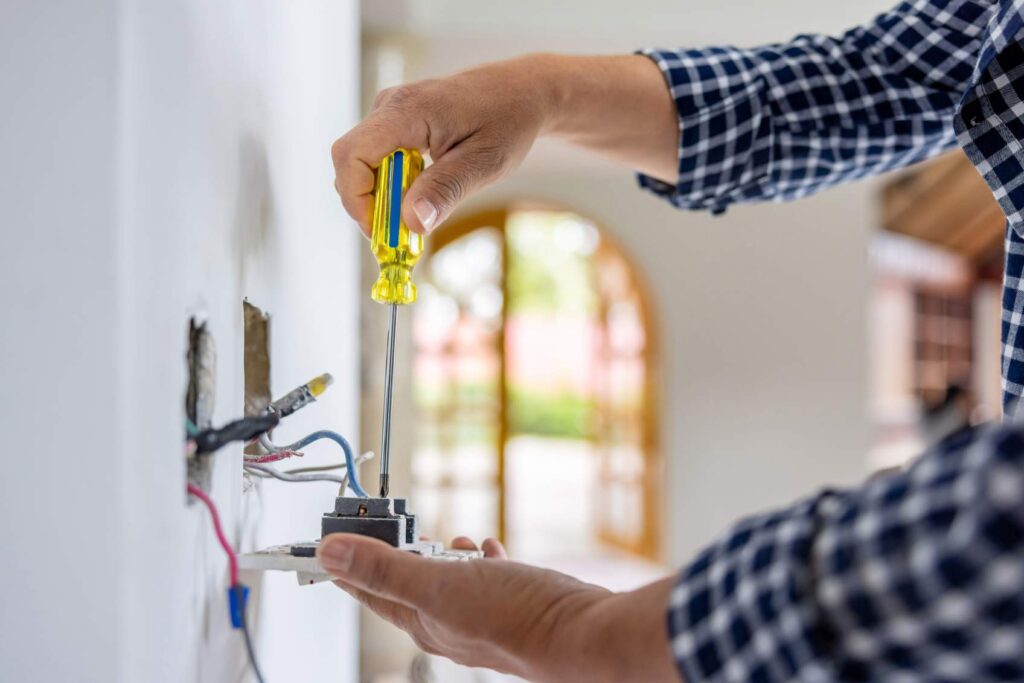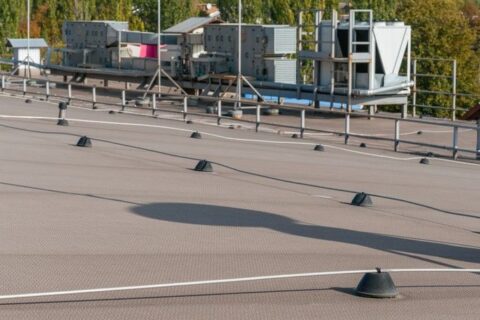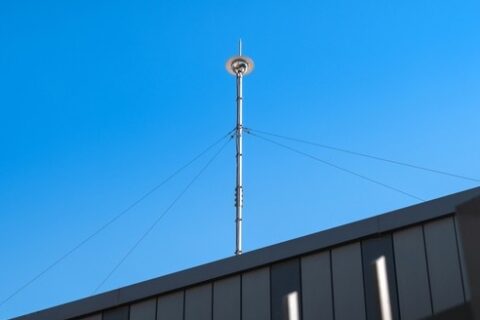What Causes Power Surges & How to Protect Your Devices
When power moves through wall outlets, it is not generated in a constant stream. Instead, there are alternating electrical currents that range from 0-169 volts at an average rate of 120 volts. Sometimes, the flow of electricity will go beyond this peak of 169 volts. That excess flow of energy is what’s known as a power surge. Many power surges are not immediately noticed or incredibly harmful to electronic devices because the spikes are relatively small. However, a significant power surge can cause immediate and permanent damage to appliances and electronic devices, which can have catastrophic effects on your home.

What Causes Power Surges?
Power surges can be caused by several different sources, ranging from appliances within your own home to lightning strikes. Here’s a closer look at the most common sources of power surges in American homes:
- Internal Sources – Internal power surges occur when certain devices power on or off, interrupting the flow of electricity to and from other electronics. For example, when your HVAC unit powers off, there may be a sudden surge of energy that diverts to other devices. This type of surge is the most common and typically is a smaller-scale surge.
- Outdated or Faulty Wiring – Older homes in Massachusetts built before 1980 are more likely to use aluminum wiring, which is not as reliable as the standard copper wiring used in homes today. With older electrical wiring, connections may become looser and cause power surges.
- Transformer Outages and Downed Power Lines – When environmental factors like fallen tree limbs take out local power lines or reactors, the power will go out while these components are repaired by local utility companies. When the power comes back on, an excess of electricity moves through the system, which can lead to power surges.
- Lightning – Lightning is a particularly concerning source of power surges because it causes much larger scale surges that can instantly damage major appliances and electronic devices. Electricity from lightning strikes can enter the home via electrical wiring, cable and phone lines, or satellite dishes and immediately zap any devices that are plugged into electrical outlets.
Does a Surge Protector Protect Against Lightning?
Surge protectors are a great line of protection for your devices. They work by diverting excess energy away from electronic devices and into the ground. However, they may not be fully effective in the case of lightning strikes. Because lightning increases voltage by such a large magnitude, surge protectors may fail to fully divert excess energy, and devices can become overloaded. Layering surge protectors with both whole home surge suppression devices and point of use surge protectors are helpful for maximizing your device protection during a thunderstorm.
How to Protect Your Home and Devices From Surges
Along with using multiple types of power surge protector devices, you can implement a few other measures for protecting your home.
- Install a Whole Home Lightning Protection System – A whole home lightning protection system will not only include a whole home surge protector, but it will also incorporate a lightning rod, grounding rods, conductors, and bonds that divert electricity from lightning strikes to the ground.
- Upgrade Your Home’s Electrical Wiring – If you have an older home or you’ve never had your electrical system professionally inspected, contact an electrician to ensure that your system is updated to modern standards and equipped to operate safely.
- Regularly Inspect Electronic Devices and Surge Protectors – You should check your devices and surge protectors often to look for any frayed wires or damaged components that could cause power surges.
Choose Boston Lightning Rod Company, Inc. in Dedham, MA
If you want to protect your home, Boston Lightning Rod Company, Inc. is here to help. We design comprehensive, effective systems to reduce damage from lightning strikes and keep your home safe. Contact us today to get a quote for your power surge protector and lightning protection system.


